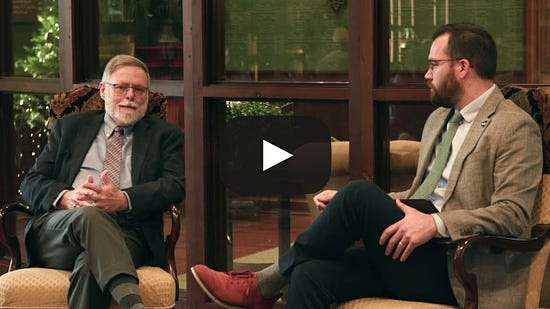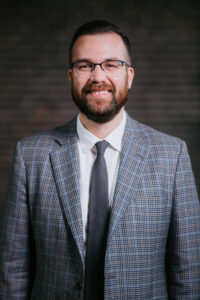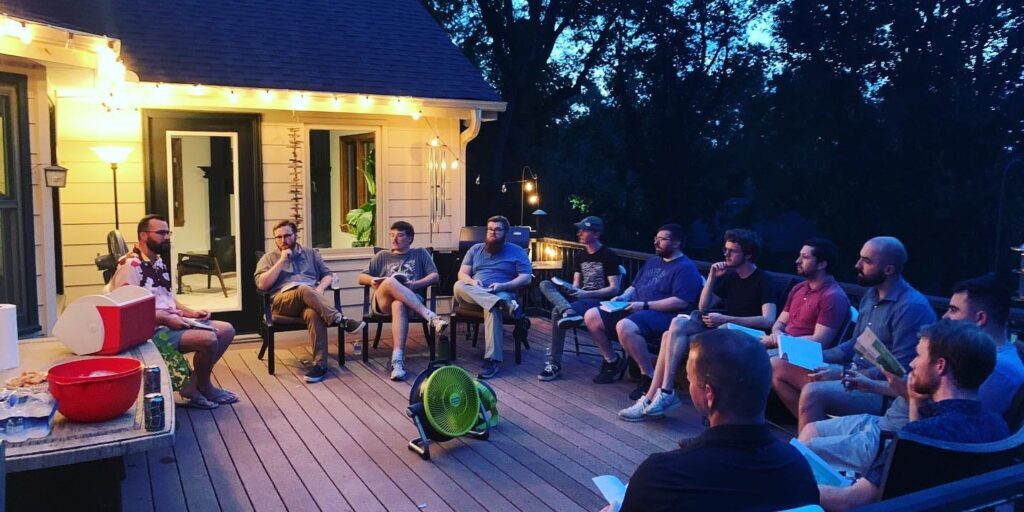
Cosmic Christology by the Pool: Retrieving Maximus the Confessor for Systematic Theology
“For the sake of my salvation, Christ, through his own death, voluntarily made my condemnation his own, thereby granting me restoration to immortality.” –Maximus the Confessor, Ad Thalassium 42
Summer is over…at least for us professors. It’s back to school, teaching systematic theology to students, some new, some old.
What have I been up to this summer? Christology. I deliberately do not teach during the summer so I can write, so what better time to focus on one of the most difficult doctrines in my Systematic Theology. Picture this: my kids splashing around in the pool all summer but before dad jumps off the high dive (my annual tradition, even though I do fear heights), he is sitting by the pool in his swim shorts reading Maximus the Confessor. (By the way, my son Charlie placed 4th in breaststroke in all of North Kansas City!)
Maximus the Confessor
Yes, Maximus. I spent the summer returning to Ambiguum, Ad Thalassium, and Opusculum. I also read his Dialogue with Pyrrhus, as well as his debate with Theodosius in exile. And I must say, Maximus is proving to be a great ally in my chapters for a host of reasons.
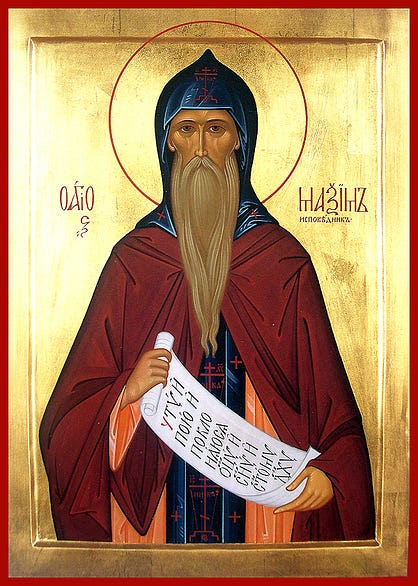 First, Maximus does not limit Christology to soteriology, like many contemporary theologians. Rather, Christology informs everything from his doctrine of creation to his articulation of deification (and yes, I will try to help evangelicals understand what deification is and is not). For good reason, his Christology has been termed “cosmic” because he utilizes the concept of recapitulation (Irenaeus) to understand why God must descend to bring about the renewal of the cosmos. He is not alone in his cosmic Christology since the apostle Paul speaks in the same key when he examines the effects of the incarnation for the culmination of the eschaton.
First, Maximus does not limit Christology to soteriology, like many contemporary theologians. Rather, Christology informs everything from his doctrine of creation to his articulation of deification (and yes, I will try to help evangelicals understand what deification is and is not). For good reason, his Christology has been termed “cosmic” because he utilizes the concept of recapitulation (Irenaeus) to understand why God must descend to bring about the renewal of the cosmos. He is not alone in his cosmic Christology since the apostle Paul speaks in the same key when he examines the effects of the incarnation for the culmination of the eschaton.
Second, Maximus is outstanding in the way he applies a classical doctrine of God to the hypostatic union. The monotheletism vs. dyotheletism debate is not just a debate about one or two wills in Christ. It is a debate about how to extend trinitarian theology so that the logic of Chalcedon is consistently applied.
Third, a fascinating Neoplatonic streak runs through Maximus’s Christology. You see it in a thousand ways if you know where to look—from his explanation of a body animated by a soul to his theory of the One and the many to his description of Christ’s assumption of a human nature and its passions. You see it shine bright when Maximus refuses to bifurcate the many logoi in creation from the one who is the Logos. Maximus applies his understanding of universals and particulars to understand what Paul means when he says, “For by him [Christ] all things were created, in heaven and on earth, visible and invisible…all things were created through him and for him.”
I could go on (Maximus has great insight for contemporary debates too), but the point is, Maximus will help my chapters on Christology integrate everything from creation to eschatology. After all, I am writing a systematic theology. By the way, if you are looking for a profound introduction to Maximus’s theology, do read Paul Blowers’s book with Oxford. And if you’ve never read Maximus before, the little book called On the Cosmic Mystery of Jesus Christ is an ideal entryway.
What else have I been up to since I last wrote?
New Book—The Reformation as Renewal (Zondervan Academic) released and I have been so encouraged to see others pick up the book with a genuine desire to understand what catholicity looked like for our Protestant fathers…and what it might look like for us, their heirs. This November at ETS a group of scholars—Gwenfair Adams, Michael Haykin, Craig Carter, and Mark Mattes—will engage the book and I will have the chance to respond and give a reflection of my own. If you like podcasts, I just finished an interview with Mere Fidelity and I have another one coming out soon with Kevin DeYoung and Justin Taylor. I also did a series of episodes with Ronni Kurtz and Sam Parkison on the Credo Podcast.
Credo Magazine—We have released a new issue of Credo Magazine on N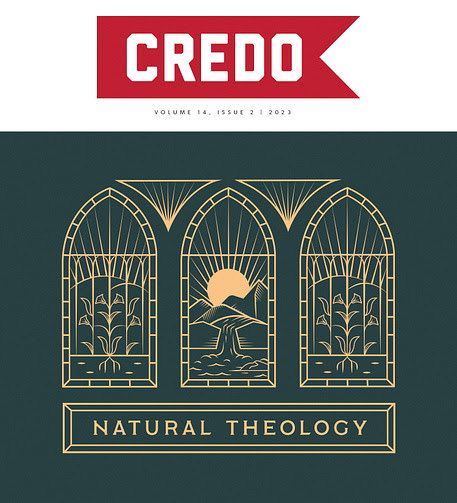 atural Theology and it is filled with a variety of outstanding contributions from J.V. Fesko, Scott Swain, Owen Anderson, David Haines, Paul Tyson, Tim Jacobs, David VanDrunen, and many others. Here is a small effort to bring Natural Theology back.
atural Theology and it is filled with a variety of outstanding contributions from J.V. Fesko, Scott Swain, Owen Anderson, David Haines, Paul Tyson, Tim Jacobs, David VanDrunen, and many others. Here is a small effort to bring Natural Theology back.
Credo Colloquy—In addition, we just released a Credo Colloquy with Craig Carter titled, “Why I am Not a Biblicist.” I recommend watching the whole video because Craig tackles everything from creeds to divine authorial intent to Christ in the Old Testament to the interplay of inerrancy and metaphysics. But what I enjoyed most was hearing Craig’s own story, how he set out to be a social trinitarian only to read the primary sources and return to the Bible with fresh (Nicene) eyes.
Israel—This summer I traveled to the holy land with my colleagues at MBTS. A true adventure. I can’t possibly sum up everything, but I have been posting pictures (and soon will post videos) on Instagram. I will say this, one of the most sobering moments for me was the pool of Bethesda. John 5 is one of the most powerful passages in all of the Bible, as Jesus exhibits his unity in being with the Father.

Preaching—Did you know I am a professor and a pastor? At Emmaus Church in KC, we are preaching through a Confession of Faith that I have been writing with the other pastors at Emmaus. I just preached the first sermon on the attributes of God from 1 Kings 18-19 (this passage was meaningful to me since I just got back from visiting Mt Carmel). Pray for us as we preach. I hope this endeavor will not only serve the people of Emmaus for decades to come but galvanize other pastors at other churches to make theology come alive for their people too.
Anselm House—Anselm lives! I hosted two Anselm houses this summer. In the first one we read from Dante’s Divine Comedy and gave our attention to the beatific vision. In the second one we read from Augustine. Thanks to B&H Academic for sponsoring this Anselm House and sending copies of A ugustine for all who came. We read aloud Augustine’s homily on baptism and the creed. Augustine sets a fine example for pastors today: you can and should preach theologically in the pulpit. Imagine Augustine, preaching on the creed to catechumens. I say we retrieve this tradition. How about you?
ugustine for all who came. We read aloud Augustine’s homily on baptism and the creed. Augustine sets a fine example for pastors today: you can and should preach theologically in the pulpit. Imagine Augustine, preaching on the creed to catechumens. I say we retrieve this tradition. How about you?
I sign off with this upcoming opportunity: I’d love to see you this November at the inaugural lecture for The Center for Classical Theology in San Antonio, TX (the evening before ETS). Carl Trueman will give the lecture, followed by dialogue with other theologians such as James Dolezal, Kevin DeYoung, and myself, and not a few Crossway giveaways. Spots are limited and filling up, so register and reserve your ticket.
I’m Matthew Barrett. Please Subscribe to Anselm House here. Until next time, do explore Credo Magazine, meet other theologians on the Credo Podcast, and participate in the Center for Classical Theology. You can follow me on twitter: @mattmbarrett
